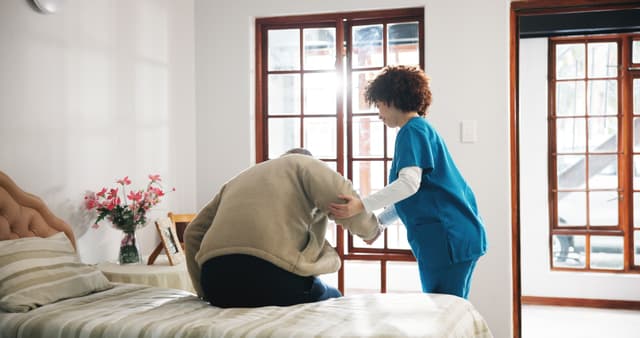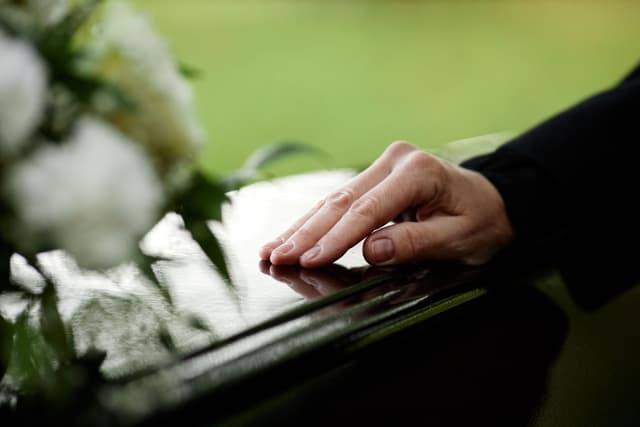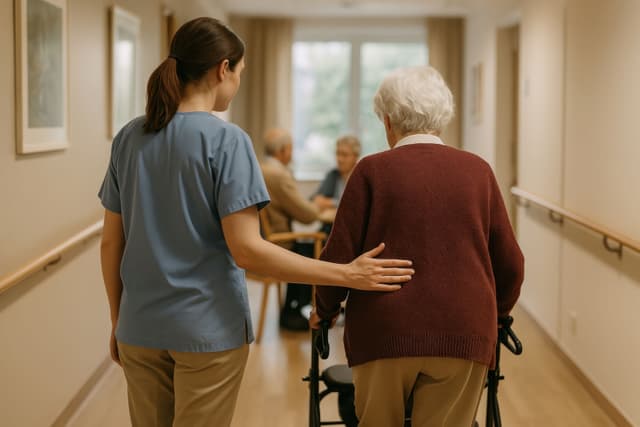
There are lots of law firms that are good at many things, but we strive to be great at one thing: holding nursing homes and assisted living facilities accountable to the public, their patients, and the families of patients when they neglect or abuse a resident. Good is not enough. Greatness is the standard we hold ourselves to.
Unlike personal injury lawyers and law firms who handle cases ranging from dog bites, slip and falls, car accidents, medical malpractice, product liability, police brutality, and many others, our practice is dedicated exclusively to being the very best at one thing. We have handled over 1,000 nursing home abuse and neglect cases covering every scenario imaginable against nearly every nursing home corporation.

We liken this to the medical field and the way we view our health. If you have a serious medical condition and require a surgical procedure, most people would prefer to have a doctor who devotes their entire practice to researching, diagnosing, and treating that exact condition. Why? Because we know that if our life or a loved one's life depends on it, we don't want to take a chance on a doctor getting it right. We need a doctor who's done that procedure over and over again and gets it right every time.
Because we have dedicated our legal practice, and frankly our lives, to nursing home abuse and neglect, we have been able to consistently achieve the highest settlements and verdicts in history, including the highest recorded verdict in several counties and the single largest verdict against a nursing home in Ohio history–a $26 million verdict in Trumbull County, Ohio.
It is easy to settle for a good law firm. But why have good when you can have great?
view all resources

Few injuries are as troubling — and as preventable — as bedsores in nursing homes. Also known as pressure ulcers or pressure injuries, bedsores can develop when a resident remains in the same position for extended periods without proper movement or care. At Michael Hill Trial Law, we frequently work with families who are devastated to discover that a loved one developed severe bedsores while under professional supervision.
In many cases, bedsores are not simply a medical complication of aging. They are a warning sign of neglect, understaffing, or failure to follow basic care standards. Understanding how bedsores develop, when they may indicate negligence, and what legal protections exist in Ohio can help families take informed action.

Losing a loved one is always painful. Losing a loved one because of preventable neglect or negligence in a nursing home is devastating. At Michael Hill Trial Law, we speak with families who are not only grieving — but also struggling with the painful question: Could this have been prevented?
While many nursing home residents have serious medical conditions, that does not mean facilities are free from responsibility. When a nursing home’s failure to provide proper care leads to a resident’s death, families may have grounds for a wrongful death claim under Ohio law.

When families place a loved one in a nursing home — especially someone living with Alzheimer’s disease or dementia — safety is the top priority. One of the most dangerous risks these residents face is wandering, sometimes called elopement, when a resident leaves a supervised area or exits the facility without proper monitoring.
At Michael Hill Trial Law, we have seen how devastating wandering incidents can be. Residents who leave a facility unsupervised may suffer falls, exposure to extreme weather, traffic injuries, dehydration, or worse. In many cases, these incidents are not unavoidable accidents — they are the result of preventable safety failures.

When families place an elderly loved one in a nursing home, they focus primarily on safety, medical care, and quality of life. Financial protection is often overlooked — until something goes wrong. At Michael Hill Trial Law, we regularly speak with families who discover too late that a loved one has been financially exploited while living in a nursing home.
Financial exploitation of seniors is one of the most underreported and misunderstood forms of elder abuse. It can quietly drain savings, create long-term financial instability, and cause deep emotional distress for elderly residents who may already feel powerless. Understanding how financial exploitation happens, what warning signs to watch for, and how families can take action is critical to protecting vulnerable seniors.